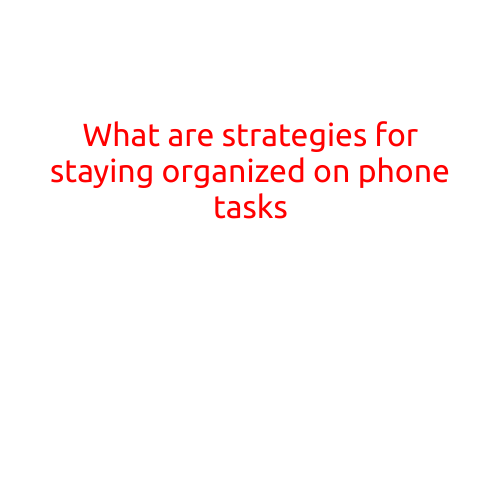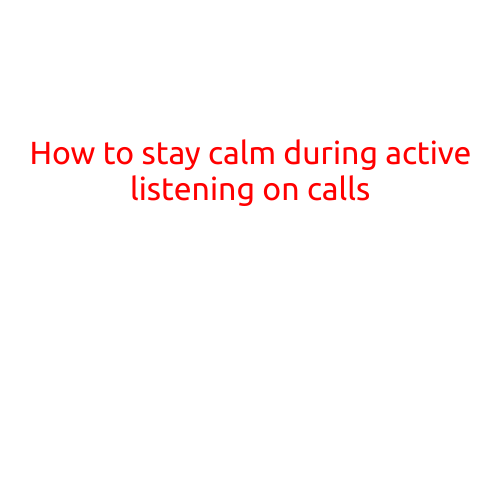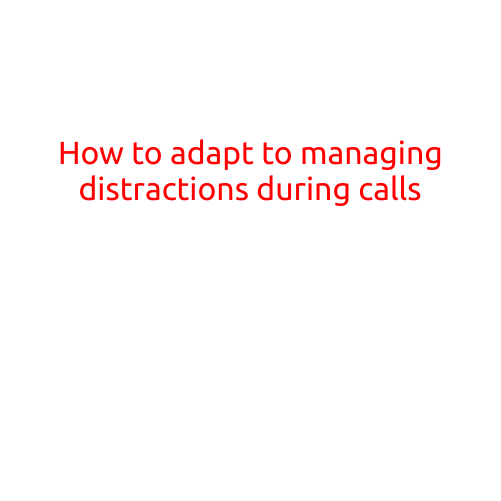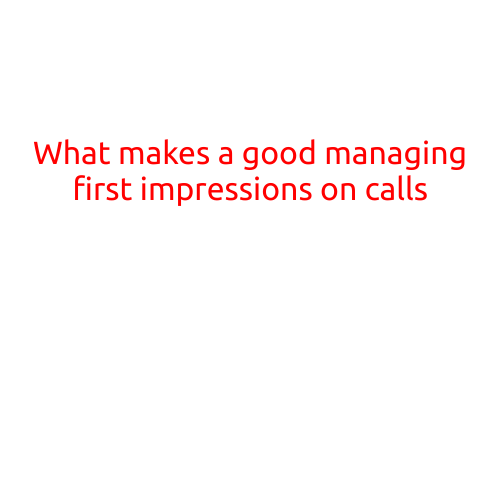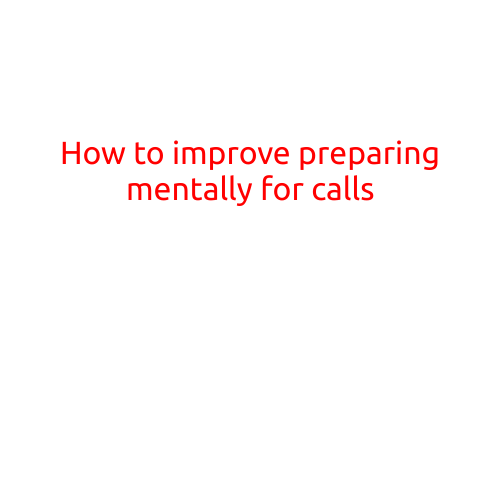
How to Improve Preparing Mentally for Calls
Effective communication is crucial in any profession that involves frequent interactions with clients, customers, or colleagues. Phone calls, in particular, require a specific set of skills to navigate successfully. Preparing mentally for calls is essential to ensure a positive and productive conversation. In this article, we will explore some practical tips to help you improve your mental preparation for calls.
1. Set Clear Goals
Before answering a call, define what you want to achieve from the conversation. This could be resolving a customer complaint, discussing a project, or gathering feedback. Having clear goals in mind will help you stay focused and ensure you allocate the right amount of time and attention to the caller.
2. Review Relevant Information
Make sure you have all the necessary information and resources readily available. This includes relevant documents, customer profiles, or project details. Having access to this information will prevent unnecessary delays and ensure you provide accurate and helpful responses.
3. Prepare a Positive Attitude
A positive and approachable attitude can greatly impact the outcome of a call. Take a few deep breaths, put a smile on your face, and mentally prepare to have a helpful and respectful conversation.
4. Use Positive Self-Talk
Encourage yourself with positive affirmations before the call. Repeat phrases like “I am prepared,” “I am confident,” and “I can handle this conversation” to boost your confidence and reduce anxiety.
5. Minimize Distractions
Find a quiet and comfortable space to take the call. Turn off notifications on your phone, computer, or other devices to minimize distractions. Ensure you have all the necessary equipment, such as headsets or speakerphones, to enable high-quality communication.
6. Take a Moment to Relax
Take a brief moment to collect your thoughts before answering the call. Take a few deep breaths, stretch, or do some quick meditation to calm your nerves.
7. Active Listening
In any successful conversation, active listening is crucial. Give the caller your undivided attention, and encourage them to speak openly and honestly. Practice attentive listening by maintaining eye contact, nodding, and summarizing the conversation.
8. Stay Focused
It’s easy to get sidetracked during a call, especially when dealing with complex or emotional issues. Stay focused by taking notes, asking clarifying questions, and reiterating the key points discussed.
9. Practice Mindfulness
Mindfulness meditation and other mindfulness practices can help you cultivate a sense of calm and clarity. Regular mindfulness practice can also improve your emotional intelligence, helping you respond more effectively to challenging situations.
10. Debrief and Refine
After the call, take a moment to reflect on how it went. Identify what worked well and what could be improved. Use this feedback to refine your approach and prepare for future calls.
Conclusion
Preparing mentally for calls is an essential skill for anyone who relies on phone conversations for their job or personal relationships. By setting clear goals, reviewing relevant information, and adopting a positive attitude, you can improve your mental preparation and navigate calls with confidence. With practice and patience, you can develop the skills needed to handle any situation that arises during a call. Remember to stay focused, practice active listening, and refine your approach to achieve the best possible outcomes.
